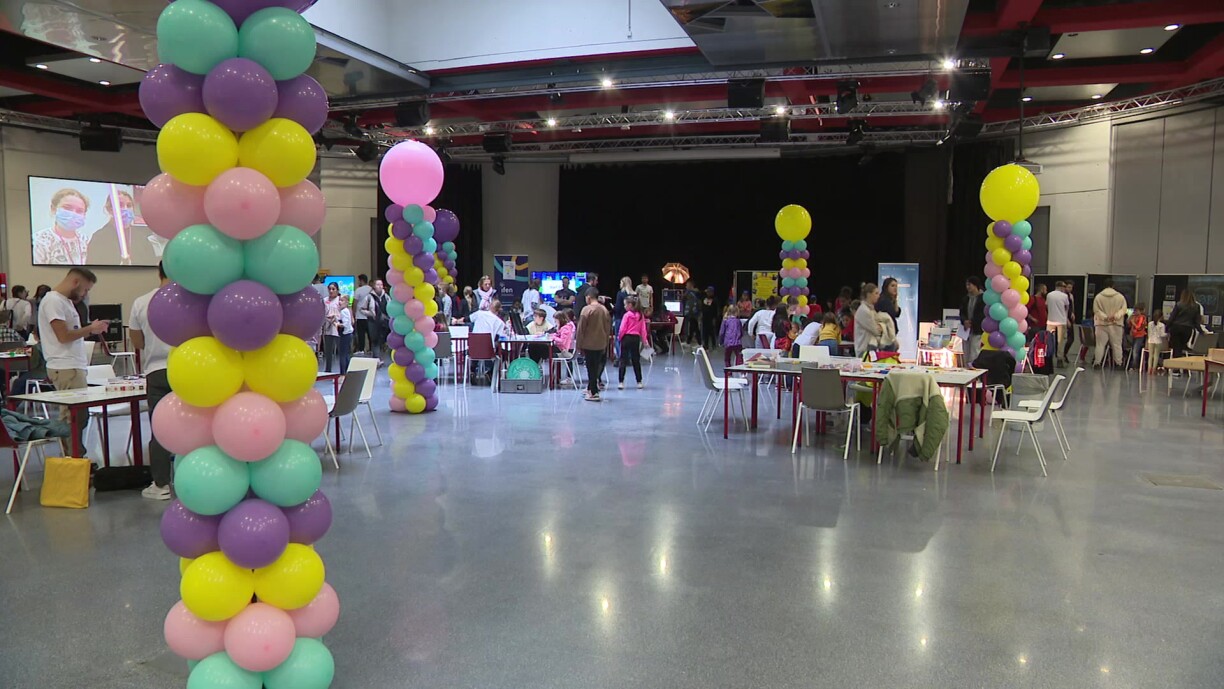
The Maker Fest’s goal is to introduce children in cycles two through four to creativity, new media, and crafts. The children came from drop-in centres (Maisons Relais) across the country. Meanwhile, others in the sector have pointed out that free childcare has negative effects as well.
Whether it’s video games, programming, robotics, calligraphy, or the playful training of cognitive skills, the Maker Fest at Forum Geesenknäppchen provided a variety of activities for 600 children aged seven to twelve all day. The event was organized by the National Youth Service (SNJ) in collaboration with a number of external partners. However, the Makerspace is open to young people during the remainder of the year as well.
Cathy Zimmer, who works in the “Makerspace” area of the SNJ, explains that the Makerspace is a large workshop where children and young people can come to work on projects. Those projects can be about anything, which can include crafts but also more technological approaches and even robotics.
This edition was entirely aimed at children from drop-in centres. Since the start of the school year in September, all school-age children have been entitled to free childcare during school hours, from 7am to 7pm, Monday through Friday. For children whose parents earn less than double the social minimum wage, it is also free during the holidays. For the others, the rate of the voucher provided by the state applies. The policy costs the state €22 million each year in total. A family with an average income and two children who spend 15 hours a week in a drop-in centre should be able to save up to €1,400 a year. However, those working in the sector criticise that parents do not properly check out their children when they pick them up.
Ferenc Ivica, who works in a drop-in centre in Heiderscheid says that this occurs “on a regular basis.” Parents also frequently arrive unannounced to pick up their children. If this happens, Ivica explains, the staff asks parents to notify them ahead of time if a child is picked up early so that the drop-in centre can reorganise their planning. According to Ivica, the drop-in centre has previously had food left over as a result of this. In this case, the staff take the food at 4pm and it is prepared again for dinner.
The staff hopes that by doing so, the children will learn that food should not be thrown away. Upon enquiry, both the Ministry of Education and the Federation of Workers in the Luxembourg Social Sector confirmed that they had heard of isolated cases when people did not properly check out their children.
For this reason, a study is currently being conducted to find out whether this is a widespread phenomenon or not. The results are expected to be available sometime in November.
The full report by RTL Télé (in Luxembourgish):